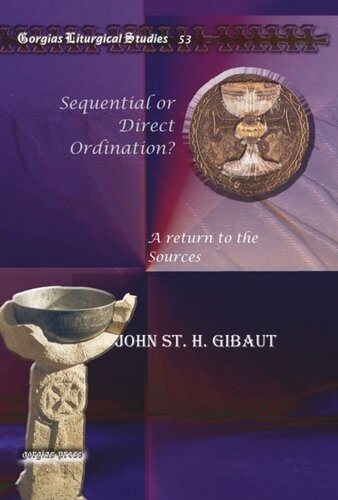

Most ebook files are in PDF format, so you can easily read them using various software such as Foxit Reader or directly on the Google Chrome browser.
Some ebook files are released by publishers in other formats such as .awz, .mobi, .epub, .fb2, etc. You may need to install specific software to read these formats on mobile/PC, such as Calibre.
Please read the tutorial at this link: https://ebookbell.com/faq
We offer FREE conversion to the popular formats you request; however, this may take some time. Therefore, right after payment, please email us, and we will try to provide the service as quickly as possible.
For some exceptional file formats or broken links (if any), please refrain from opening any disputes. Instead, email us first, and we will try to assist within a maximum of 6 hours.
EbookBell Team

4.1
90 reviewsIn the Anglican Communion, the medieval practice, which certainly had some earlier roots, continued—that ordination came to any one individual in this 'sequence': deacon, presbyter, bishop. The Anglican ordinal was so committed to this pattern at the Reformation that Cranmer's text prayed that deacons 'may so well use themselves in this inferior office, that they may be found worthy to be called unto higher ministries in thy Church.' Latterly, however, Anglicans have not only sought to develop the calling of a deacon in his or her own right, but have in some places and cases promoted the idea that the true calling of a deacon and of a presbyter would be best clarified by a separate 'direct' ordination. John Gibaut, a liturgical theologian of the Anglican Church of Canada, presents the case for 'direct' ordination—rooting it in the patristic era, and spelling out its implications in the present day.